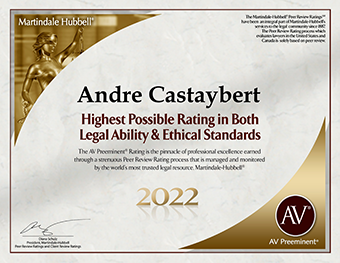Forms necessary for employee leave under the Paid Family Leave Law are now available online here. Forms are available for employees, employers, and insurance carriers. For employees, forms include those for bonding leave, leave for a family member’s serious health condition, and leave for assistance in connection with a military deployment.
To learn how Castaybert PLLC can assist with matters of employment law, click here.







